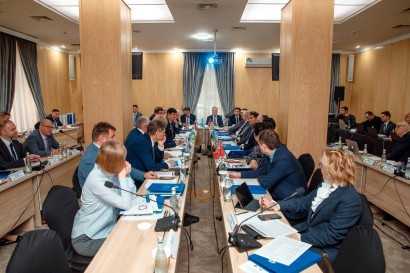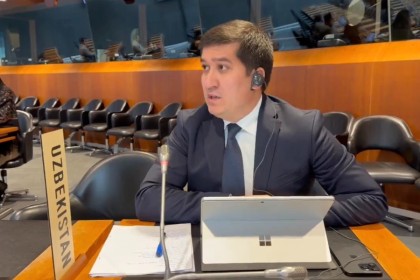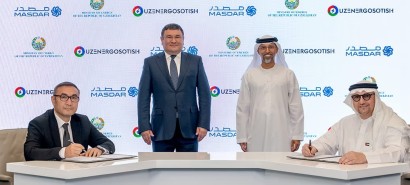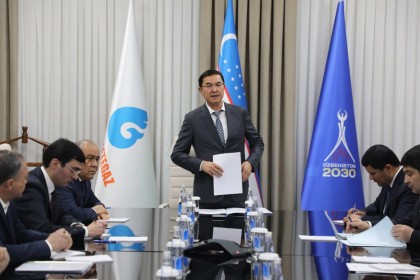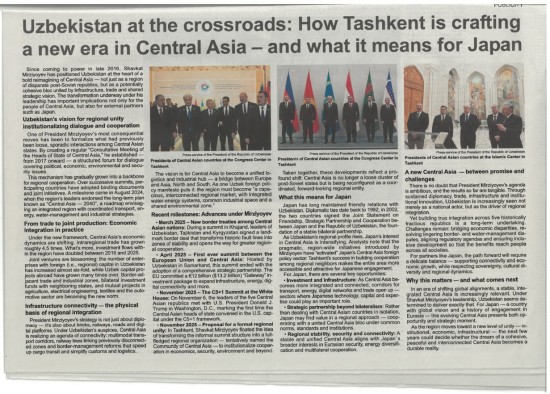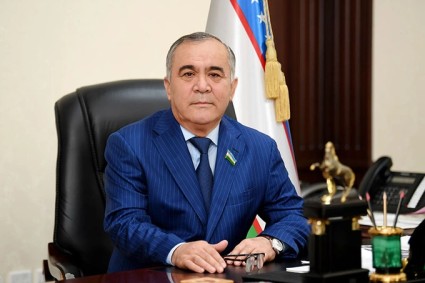Construction contracts for two major COVID-19 medical facilities near Tashkent city were awarded to companies linked to the Uzbek president’s inner circle and the capital city’s mayor.
These concern contracts for a 20,000-bed quarantine center on Tashkent’s southeastern outskirts, and a special hospital with 10,000 beds in a southwestern suburban district.
The projects were initially projected to total about $100 million, according to initial documents.
This wrongdoing highlights Uzbekistan’s continued problem of entrenched corruption - including no-bid contracts, monopolistic price gouging, violations of public transparency law, and insider trading.
Since taking office in 2016, President Shavkhat Mirziyoev has pledged to clean up the country’s reputation as a haven for corruption and attract new foreign investment for Central Asia’s most-populous country.
But the Uzbek and foreign watchdog groups have documented major issues of graft, particularly in Tashkent and surrounding provinces, where there is an increasing demand for real estate.
President Mirziyoyev last year initially announced US$1 billion for the fight against the coronavirus. However, in a speech earlier this month, he stated that a total of $8 billion in public funds had been spent in the fight against the disease, much of which was financed by government-issued bonds.
The two medical facilities in question are both operational.
However, both are far smaller than the initial contracts envisioned; public records show that the one supposed to have 10,000 beds currently has only 4,128.
According to the contract and other public records obtained by our sources, three limited-liability companies received contracts to oversee and build the facilities under decrees issued in March 2020.
The lead beneficiary, according to public records and government decrees, was Jahongir Ortiqhojaev, the Tashkent mayor who has been linked to other secretive real-estate developments.
A federal unitary enterprise -- basically a government-owned corporation -- that is controlled by Ortiqhojaev’s office signed two identical contracts for building a 10,000-bed hospital on March 26, 2020, just one day after the government issued a decree ordering the construction.
Two of the companies are linked to Achilbay Ramatov and Bakhtiyor Fazylov, Uzbek businessmen and developers known for close ties to Mirziyoev’s inner circle.
Companies controlled by the two men split the construction of the Zangiota facility, located on a 130-hectare plot just outside of Tashkent.
Neither companies owned by Ramatov and Fazylov nor their representatives responded to our requests for comment.
Ramatov and Fazylov have been linked to another secretive government project: an exclusive mountain compound -- including a new reservoir -- that was built for Mirziyoev’s use last year.
A company named Brigenergo, which is based in the Russian city of Kazan, has also been identified by RFE/RL as a subcontractor on the secretive compound.
A list of projects the company said it had completed in 2020 or participated in includes the mountain compound and the 10,000-bed hospital in the Tashkent province.
We were unable to find further details about Brigenergo’s beneficiary owners. A person who answered the phone listed as the company’s general director hung up immediately when we called him.
Meanwhile, the general director of the contract to build the 20,000-bed facility in Yukorichirchik, located southeast of the city, is the same federal unitary company that is controlled by Ortiqhojaev.
The main contractor is Prime Tower Group, according to records reviewed by RFE/RL. The subcontractor is Obod Shakar Kurish.
Documents show that the ultimate beneficiary owner of these two other entities is Ortiqhojaev himself, through a series of shell companies, some of which share identical offices.
Contacted by us, the Tashkent Mayor’s Office declined to comment.
The Construction Ministry said it was not involved in either project and knows nothing about them.
The contracts for the two projects included several clauses that shift the financial burden largely onto the government’s shoulders.
The Prosecutor-General’s Office has said publicly that it had been investigating misuse of public funds in the fight against COVID-19.
The findings the office has publicized to date have mainly targeted low-level bureaucrats in several regions.
Uzbekistan’s death toll from the disease stands at 731, with nearly 110,000 cases recorded, according to official data provided to John Hopkins University.
Those numbers are widely believed to be a major undercount of the actual figures.
Sevara Yusupova
Economy columnist



